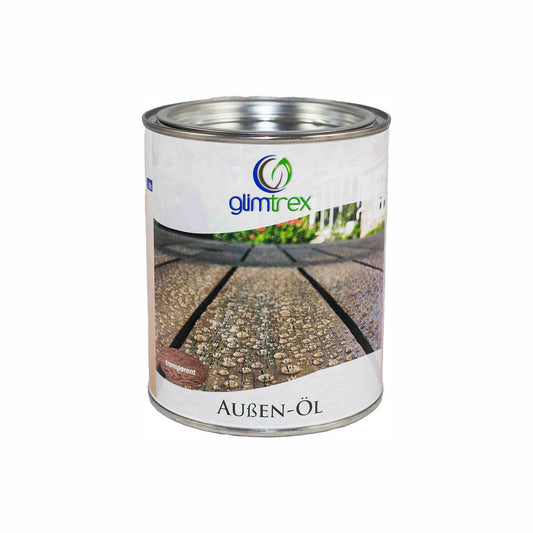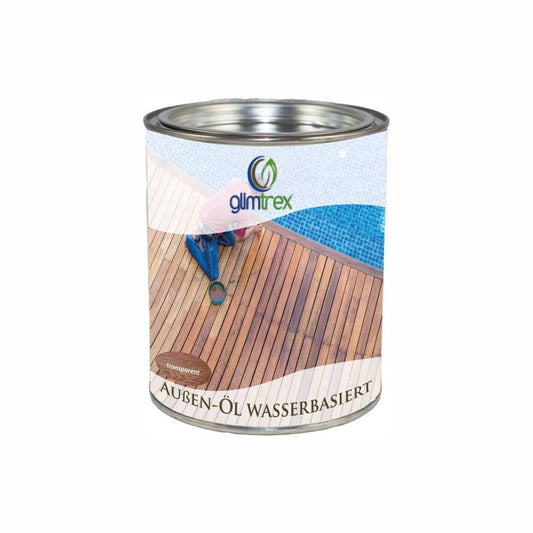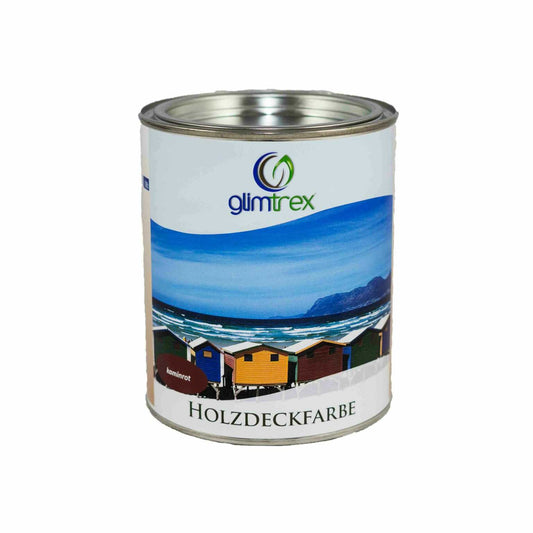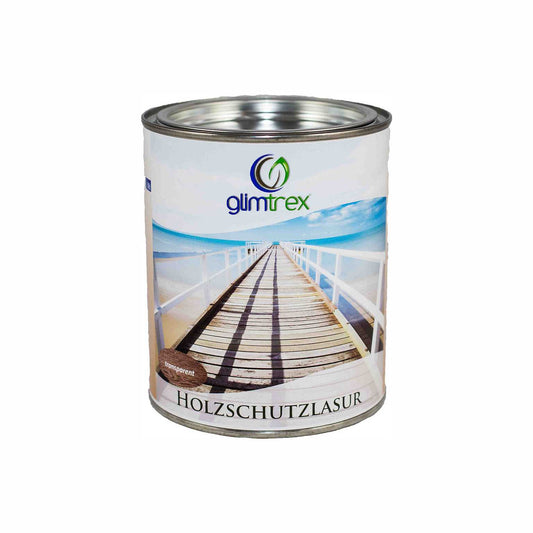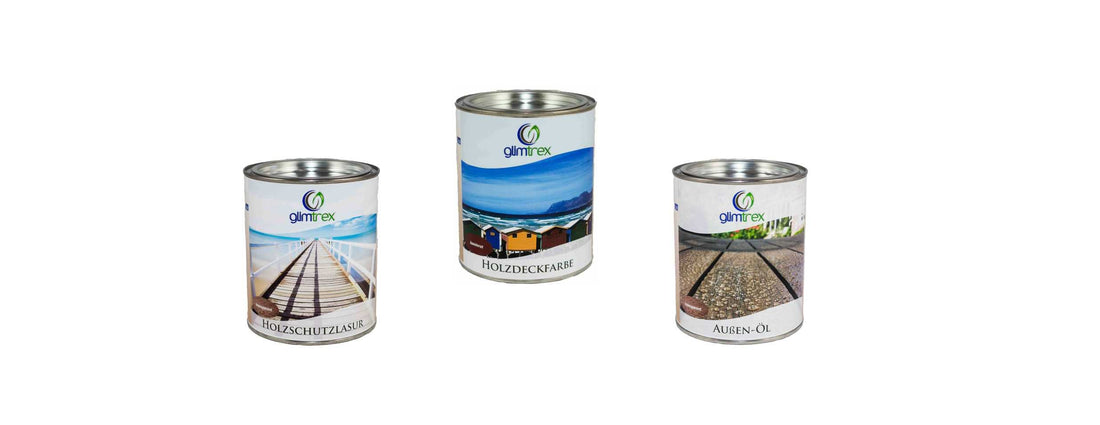
Wood stain, wood paint or exterior oil?
Share
Sun, rain, frost, and microorganisms all take their toll on the natural material – wood. The right protective treatment is crucial for the longevity and beauty of your wooden elements. But which product is suitable for what?
Outdoor oils
When to use:
- When the natural wood structure and grain should be emphasized
- For terraces, garden furniture and wooden decks outdoors
- If a matte, natural look is desired
- For woods with beautiful natural coloring or structure
- When a simple renovation without sanding is important
Characteristics:
- Penetrate deep into the wood, do not form a film
- Let the wood breathe
- Need to be refreshed more regularly (1-2 years)
- Easy renovation possible by re-oiling
glazes
When to use:
- When protection and color should be combined
- For wooden facades, fences, pergolas, carports
- When UV protection is important, but the wood structure should remain visible
- For decorative color effects with visible wood structure
Characteristics:
- Middle layer formation
- Transparent to semi-transparent coloring
- Good UV protection through pigments
- Longer shelf life than oils (2-5 years)
- Various gloss levels available
Wood paints/opaque coatings
When to use:
- For heavily weathered or damaged wood
- If a completely new color scheme is desired
- For maximum weather protection for facades and heavily used surfaces
- When renovating old paintwork with different shades
- If very long renovation intervals are desired
Characteristics:
- Fully opaque, wood structure no longer visible
- Form a closed film
- Maximum UV and weather protection
- Longest shelf life (5-10 years)
- More extensive renovation (sanding may be necessary)
The choice ultimately depends on your priorities: natural look (oil), balance between visibility and protection (glaze) or maximum protection and color design (wood stain).

